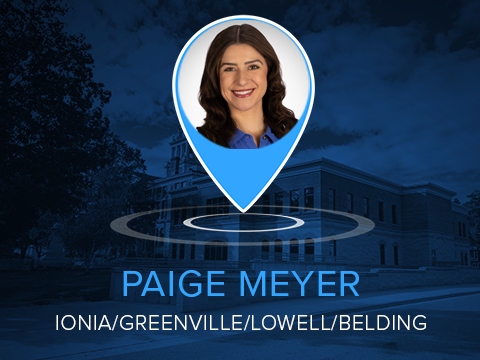KENTWOOD, Mich. — May is Brain Tumor Awareness Month and a Kent County family wants people to “go gray” in honor of their daughter who survived a rare diagnosis.
12-year-old Maddie Pagel was diagnosed with Choroid Plexus Carcinoma at just four months old.
The rare brain cancer spread to her spine causing her to undergo several surgeries and numerous rounds of chemotherapy.
Maddie’s mom, Tracy, says none of it worked and Maddie’s doctors told the Pagel family they could no longer treat her.
Tracy refused to give up and, because of her tenacity, Maddie was able to get next generation sequencing (NGS).
“They wanted to send her home on hospice, but I refused to do that. I was like, ‘nope. There’s got to be something else to do,’” Tracy said.
NGS analyzes tumor samples. Doctors analyze the results and identify patients, like Maddie, who may benefit from targeted therapies and clinical trials.
In Maddie’s case, her team found a handful of medications that reduced the tumor almost immediately.
“I think the first scan, they were saying that it was shrinking and the cancer down her spine was gone. So, yeah, it was pretty fast,” Tracy explained.

Garret Hampton works at Thermo Fisher Scientific, a life sciences company based in Massachusetts.
He says, traditionally, doctors test individual genes for targeted therapies.
The process can take weeks, but Hampton hopes more people become aware of and use NGS.
“Part of it is awareness on the part of the oncologist. Part of it is an awareness that, in fact, it’s actually easy to bring in this technology into a pathology lab. I think third is, ‘are these tests reimbursed like any other tests?’ And that’s an evolving landscape. We are seeing more and more insurance companies cover this but not all insurance companies,” Hampton explained.

If Maddie shows up clear at her next appointment in June then she will have been in remission for three years.













